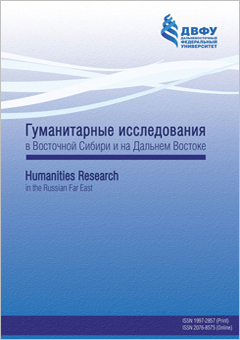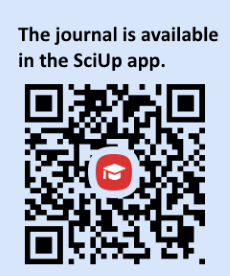Interdisciplinarity in ecosemiotic research: narrative and commemorative strategies
DOI:
https://doi.org/10.24866/1997-2857/2022-2/130-135Keywords:
ecology, ecosemiotics, narrative, historical memory, landscape, ecosystem, interdisciplinarityAbstract
The article is devoted to the epistemological analysis of modern ecosemiotics and ecolinguistics, which lay at the intersection of the humanities and natural sciences. The authors believe that ecology, as an interdisciplinary field of knowledge aimed at achieving specific practical results, requires not only biological and chemical experiments and expertise, but also various research in social sciences and humanities devoted to the formation of meaning, preservation and transmission of historical ecological memory and narrative, that is ecosemiotics, ecological history, econarratology. The authors reveal the methodological effectiveness of narrative and commemorative methodological strategies in the ecological context, substantiating the interdisciplinary nature of the ecosemiotics and clarifying the boundaries of the application of these strategies.
Downloads
References
Данилова М.И., Суховерхов А.В. Биологические и социальные основы эволюции языка и коммуникации: современные дискуссии // Вопросы философии. 2015. № 12. С. 77–87.
Письмо заведующего лесопарком государственного музея-усадьбы «Ясная поляна» К.С. Семенова академику С.Г. Струмилину о проблемах охраны леса // Экология и власть. 1917–1990: документы. М.: МФД, 1999. C. 198‒199.
Струговщикова У.С. «Зеленый» тренд становящейся культуры будущего // Вопросы философии. 2021. № 12. С. 127–130.
Суховерхов А.В. Проблема соотношения языка и мышления в современной эколингвистике и экосемиотике // Язык. Культура. Общество: сборник статей по материалам межвузовской научно-методической конференции, посвященной 85-летию образования кафедры иностранных языков. Краснодар: КубГАУ, 2016. С. 95‒105.
Caracciolo, M., 2020. We-narrative and the challenges of nonhuman collectives. Style, Vol. 54, no. 1, pp. 86–97.
Caracciolo, M., Marcussen, M. and Rodriguez, D. eds., 2021. Narrating nonhuman spaces: form, story, and experience beyond anthropocentrism. Ney York: Routledge.
Farina, A. and Belgrano, A., 2006. The eco-field hypothesis: toward a cognitive landscape. Landscape Ecology, Vol. 21, no. 1, pp. 5–17.
Heersmink, R., 2020. Narrative niche construction: memory ecologies and distributed narrative identities. Biology & Philosophy, Vol. 35, article no. 53.
Herman, D., 2018. Narratology beyond the human: storytelling and animal life. New York: Oxford University Press.
Maran, T. and Kull, K., 2014. Ecosemiotics: main principles and current developments. Geografiska Annaler. Series B, Human Geography, Vol. 96, no. 1, pp. 41–50.
Nöth, W., 1996. Ökosemiotik. Zeitschrift für Semiotik, Vol. 18, no. 1, pp. 7–18.
Shang, B., 2022. Towards a theory of nonhuman narrative. Neohelicon. https://doi.org/10.1007/s11059-022-00628-y
Szabo, P., 2010. Why history matters in ecology: an interdisciplinary perspective. Environmental Conservation, Vol. 37, no. 4, pp. 380–387.
Watkin, Ch., 2015. Michel Serres’ great story: from biosemiotics to econarratology. SubStance, Vol. 44, no. 3, pp. 171–187.
Zellmer, A.J., Allen, T.F.H. and Kesseboehmer, K., 2006. The nature of ecological complexity: a protocol for building the narrative. Ecological Complexity, Vol. 3, no. 3, pp. 171–182.
Downloads
Published
Issue
Section
License
Copyright (c) 2022 Ирина Олеговна Щедрина, Кирилл Александрович Боженок

This work is licensed under a Creative Commons Attribution-NonCommercial-NoDerivatives 4.0 International License.














